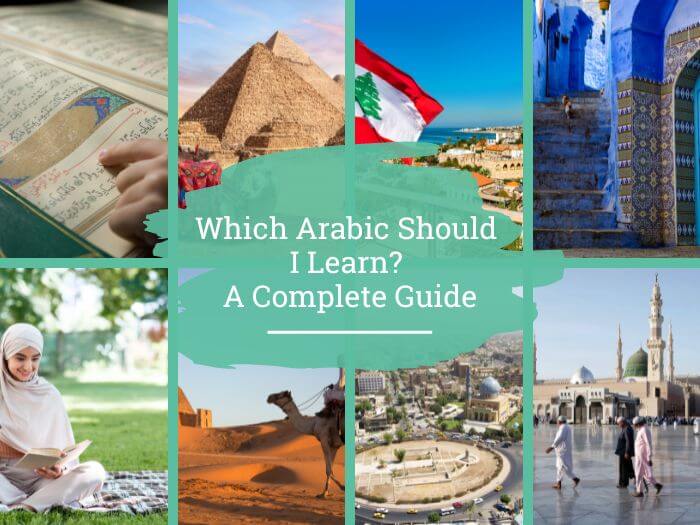Are you thinking about learning Arabic? And wondering – which Arabic should I learn? You’ve come to the right place!
There are a lot of different variations of Arabic. But that’s not all. These dialects are sometimes very different from one another.
This might present you with a dilemma on which type of Arabic you want to master.
So this post is for you: to help you have all the information you need to decide on which type of Arabic you want to learn.
Pro Tip
By the way, if you’re thinking about learning Arabic, then I have some great news for you! My course, Arabic Uncovered, teaches you Arabic through StoryLearning®! It’s fun, easy, and effective! Find out more and get you free 7-day trial of the course.
What Are The Different Types Of Arabic?
To start with, there’s a number of different types of Arabic that are all useful depending on the situation at hand.
But broadly speaking, you can separate Arabic into three different types: classical Arabic, Modern Standard Arabic (MSA), and the Arabic dialects.
Classical Arabic
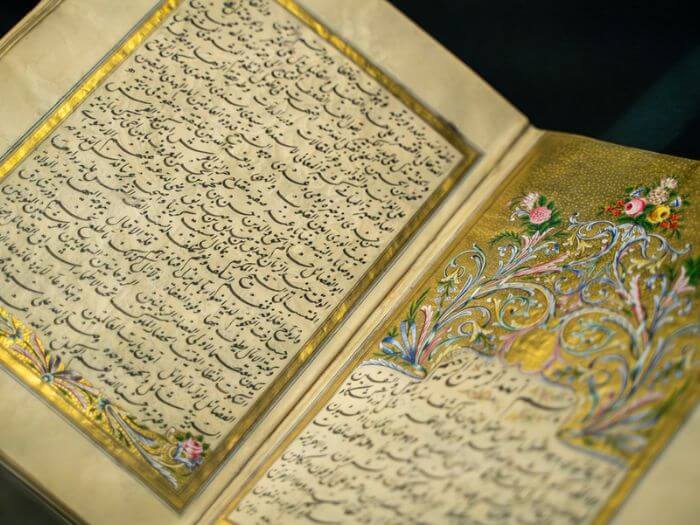
What is Classical Arabic, you might ask? Arabic as a language has a long history that is interconnected with the rise of Islam and Islamic civilizations in the second half of the first millenia.
As a result, there are a lot of Arabic texts from the past that have an influence on everyday traditions, culture, and religion. For example, Classical Arabic is the Arabic that is used in the Qur’an, but also in old Arabic books and other Islamic texts.
This means that Classical Arabic is useful to learn and know if you have a specific goal in mind, such as better connecting with your religion, or getting a stronger understanding of Islamic history.
Regardless, if you’re learning Arabic as a second language, you typically wouldn’t start learning Classical Arabic without first building a foundation in Modern Standard Arabic. Which brings me to the next type of Arabic…
Modern Standard Arabic (MSA)
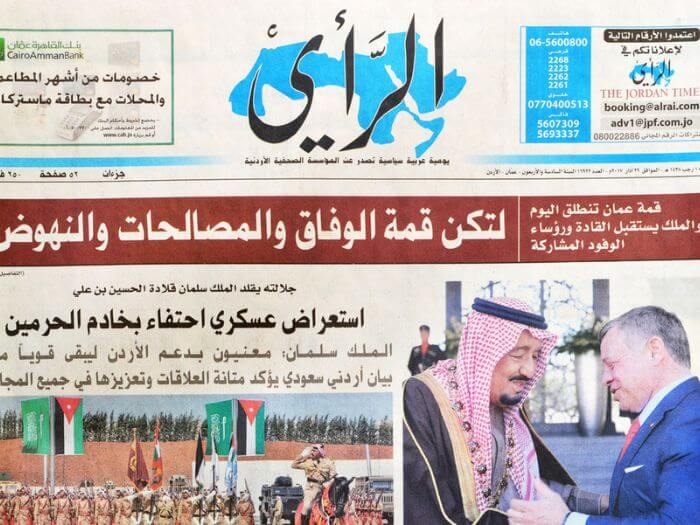
Modern Standard Arabic (MSA) is also known as fusHa, and is the standard formal Arabic that Arabic speakers use for all written media.
Here’s the thing – for the most part, all of the books, documents, and written materials you’ll encounter will use MSA, whether you’re reading a news article online, or signing a government document.
Because MSA is the standard that’s used across different contexts by all Arabic speakers, most Arabic courses typically teach MSA.
This may be all fine for you if your goal in learning Arabic is to be able to read and understand different Arabic books and texts.
But MSA is distinct from being the standard Arabic that Arabic speakers use in daily life, because you’ll be hard-pressed to find anyone that actually speaks MSA beyond the news you watch on TV.
Literally, nobody speaks MSA. So it might be a bit discouraging if your overall goal is to start speaking Arabic fluently.
The good news is that because it’s the standard, you can always get around to learning one of the spoken Arabic dialects with a foundation in MSA.
Dialects/Colloquial Arabic
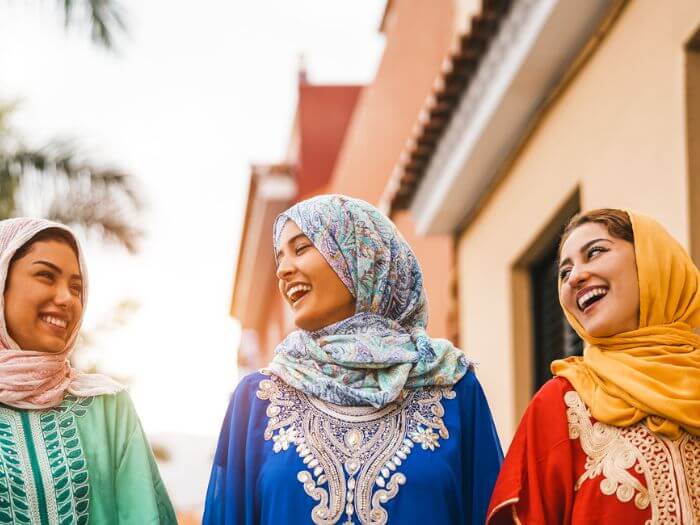
Last but not least, there are the Arabic dialects.
There is a huge variety of Arabic dialects that are spoken all across the Arabic-speaking world, spanning all the way from Yemen on the far end of the Arabian peninsula to Morocco on the western corner of the African continent.
It’s hard to say just how many Arabic dialects there are because of the variety, but you can safely guess that there are about 25 different Arabic dialects.
That said though, “dialects” doesn’t really capture it, because the Arabic dialects are often so different from each other to the point that it can feel like you’re learning a new language.
Of course, not every Arabic speaker knows every Arabic dialect, which means that you’ll likely only be able to communicate comfortably with the people who know the same Arabic dialect that you’re learning.
This means that it’s pretty important to choose to learn an Arabic dialect that fits your needs and interests.
What Are The Main Arabic Dialects?
So what are the main Arabic dialects? There are a few main groupings of Arabic dialects, and each grouping includes a number of dialects. Here’s a breakdown of the main Arabic dialects used today:
Egyptian Arabic

Egyptian Arabic is spoken, as you might guess, in Egypt!
Of all of the Arabic dialects, it’s the most commonly spoken Arabic dialect in the Middle East, with about 77 million speakers who call it their first language, and millions more who speak it as a second language.
The fact that Egyptian Arabic is the most commonly spoken Arabic on its own means that there are a lot more resources available for people interested in learning Egyptian Arabic compared to other dialects.
Beyond this, it’s one of the most widely understood dialects in the Arabic-speaking world because of Egypt’s position as a cultural hub. A huge amount of Arabic cinema and Arabic TV series come from Egypt.
Because of this, even if people don’t speak Egyptian Arabic, you’ll likely be able to carry a conversation in Egyptian Arabic with other Arabic speakers and still be understood.
Of course, that might not mean that you’ll understand them back, but you might be able to count on some people to “Egyptian-ize” their speech when speaking with you.
Egypt is also one of the most visited countries in the Middle East, with the pyramids, the Nile, and other ancient sites. So it’s definitely worth thinking about learning Egyptian Arabic so that you can get around!
That said, there are a couple of pronunciation differences that might feel like a bit of a jump if you’re familiar with MSA or any of the other Arabic dialects.
For example, the letter jiim (ج) is pronounced as giim, which means that you’d change any word that has the sound “j” with “g”.
For example, jaamiya3 / جامعة (university) is pronounced as gaamiya3 in Egyptian Arabic.
Gulf Arabic
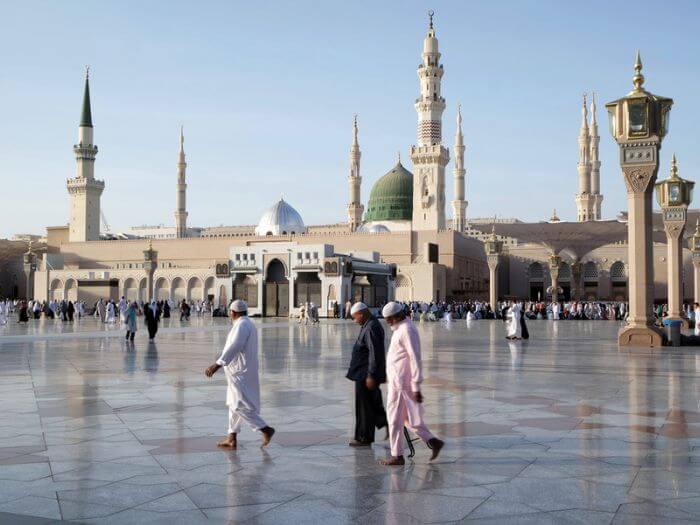
Gulf Arabic is spoken in the Arabian Peninsula, which is often also called the Gulf region.
It’s a dialect that is a part of a group of dialects called Peninsular Arabic, which are spoken across Saudi Arabia, the United Arab Emirates (UAE), Qatar, Oman, Bahrain, Kuwait, and Yemen.
Of these dialects, the Saudi version of the Gulf dialect is the most commonly spoken dialect in the region that you might encounter, and you can use it across countries like Kuwait, Saudi Arabia, Qatar, and UAE.
This can make Gulf Arabic really useful to know, seeing as major economic and trade hubs like Dubai, Doha, and Riyadh are based in these countries.
There are also all kinds of jobs available for foreigners in these countries, whether it be as an English teacher or as a business person.
Saudi Arabia is also really important if you’re a Muslim. That’s because two of the most important cities in Islam (Mecca and Medina) are in Saudi Arabia, making it a holy site for pilgrimage.
Gulf Arabic is also considered by many Arabic speakers to be the most similar to MSA, which might mean that there is less of a jump in learning if you already have a foundation in MSA or if you’re trying to learn MSA with a dialect.
That said, though, it’s worth noting that there’s still a bit of variety in Gulf Arabic as it’s spoken across these countries. So you’ll likely still need to navigate the differences between the way Gulf Arabic is spoken between Saudi Arabia and other countries in its vicinity.
Iraqi Arabic
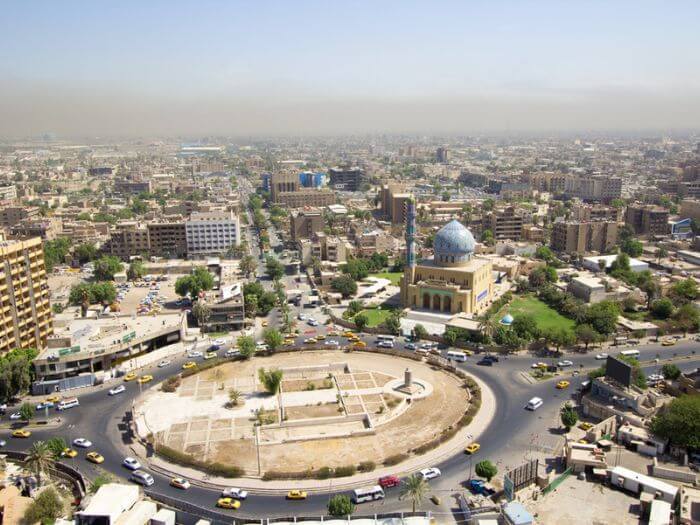
Next, there’s Iraqi Arabic. Iraqi Arabic is a variation of a wider group of languages called Mesopotamian Arabic, which is spoken in Iraq and to a lesser extent in Syria, Kuwait, Iran, and Türkiye.
But because Mesopotamian Arabic is most commonly spoken in Iraq, it’s often referred to interchangeably as Iraqi Arabic.
For the most part, most Arabic dialect courses have generally overlooked Iraqi dialect due to concerns that people who learn it will never have the opportunity to use it.
That’s because Iraq hasn’t been on many people’s list of travel destinations for many decades because of war and other geopolitical battles.
Still, Iraqi Arabic has a rich history that has its roots in Mesopotamian history. So you might want to learn it if you’re keen on learning more about this ancient history and culture.
Levantine Arabic

Then there’s Levantine Arabic, which is spoken all across countries in the Levant, including Syria, Lebanon, Jordan, and Palestine. There are about 48 million people who speak different variations of Levantine Arabic.
While each of these variations are unique from one another, you can count on being able to carry a conversation with other speakers of Levantine Arabic if you know one of these dialects.
And there are lots of great reasons to learn different variations of the Levantine Arabic.
To start with, Lebanese cinema has made headway globally, so there’s plenty of movies that you can watch for practice. Syrian Arabic in recent years has become a really useful language to know if you work in the humanitarian field.
And with Palestinian and Jordanian Arabic, there are many diaspora groups around the world, which means that you might be able to practice speaking with people in your immediate community.
The Levantine region is also a significant historical and touristic hub, with sites like Petra, Byblos, Wadi Rum and the Dead Sea.
Also, since Levantine Arabic has typically been a more popular dialect for Arabic learners, there’s always the advantage that you can access a lot more print and online resources for learning Levantine Arabic compared to other dialects.
And even if the total population of Levantine Arabic speakers is smaller than the total number of Egyptian dialect speakers, you can still get around a lot using it due to its general similarity to the Egyptian dialect in grammar.
Sudanese Arabic
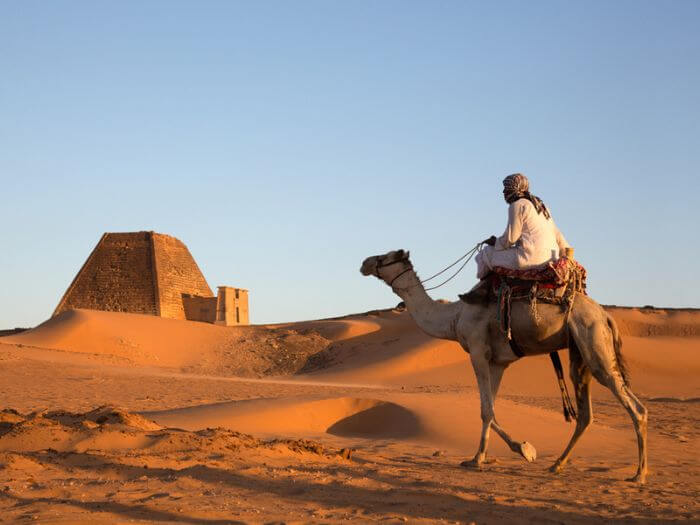
Going southwards, there’s also Sudanese Arabic. Sudanese Arabic is spoken where you might guess it’s spoken: in Sudan.
Sure, you might think it’s not that useful seeing as it’s spoken for the most part only in Sudan, with a few variations of the dialect in South Sudan and Eritrea.
But Sudan is a huge country both in terms of area and population. The population of Sudan is 48 million, which is bigger than other countries in North Africa like Algeria or Morocco.
Sudanese Arabic is also fairly similar to the Egyptian dialect as the two countries share a border. But the main difference is in the pronunciation in some letters and in vocabulary.
That’s because Sudanese Arabic uses a lot of vocabulary from other African languages like Nubian.
While it’s a useful dialect to know in all senses, one challenge you might find is that finding resources for learning Sudanese Arabic might be more difficult compared to other Arabic dialects because of the larger focus on dialects like the Egyptian and Levantine dialects.
Maghrebi Arabic
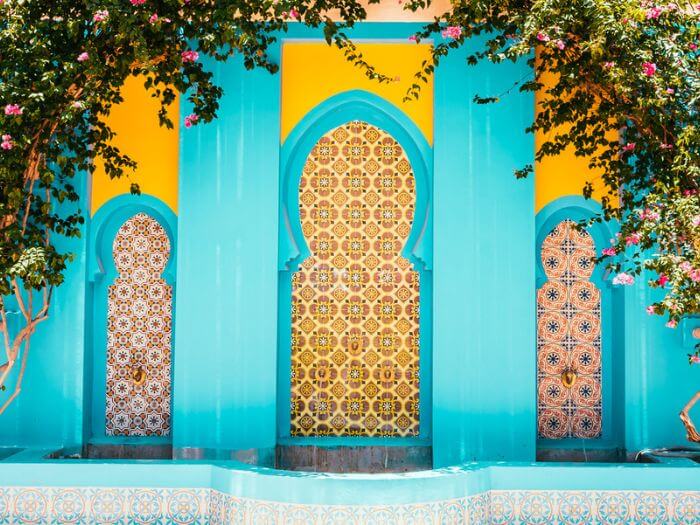
Last but not least, there’s Maghrebi Arabic. Maghrebi Arabic refers to a number of Arabic dialects that are spoken along North Africa, also referred to as the Maghreb.
Maghrebi Arabic dialects include dialects that are used in countries like Morocco, Algeria, Tunisia, and Libya.
Because the word Maghreb / مغرب is also the same word for the country Morocco, you should note that Maghrebi Arabic is not to be confused with Moroccan Arabic.
Moroccan Arabic is called Darija / الدارجة by Arabic speakers, and is the most commonly spoken Maghrebi dialect.
There are a lot of advantages to learning a Maghrebi dialect. First off, there are a huge number of Maghrebi Arabic speakers, so you’ll definitely be able to put it to good use if you learn it.
That said, a lot of Arabic speakers from outside the region think that learning Maghrebi Arabic, and especially Darija Arabic, is hard.
That’s because the vocabulary is pretty different from the other Arabic dialects, making many Arabic speakers assume it’s like learning a different language entirely due to its evolution from mixing together with other North African languages like Berber.
French And Spanish Influence

Also, there’s a huge French and Spanish influence in some of the Maghrebi languages, which make it more challenging for people who aren’t familiar with these languages to learn the vocabulary.
There’s a reason for this – Tunisia and Algeria were both former colonies of France and include a lot of French words, while Morocco has a huge Spanish influence because of its proximity to Spain.
In fact, you might be surprised to hear French or Spanish pronunciation of Arabic words used by Maghrebi Arabic speakers.
This is pretty normal, and there are lots of people in these countries that code-switch, or mix speaking Arabic with other languages.
While this all makes Maghrebi Arabic pretty different from the rest of the dialects, I’d argue that this doesn’t necessarily make Maghrebi Arabic hard. It just requires some more time to get a grasp of a different set of vocabulary.
And if you do speak either French or Spanish, then you might just find that you have a leg up in learning Darija Arabic!
Do I Need To Learn MSA Before Learning A Dialect?
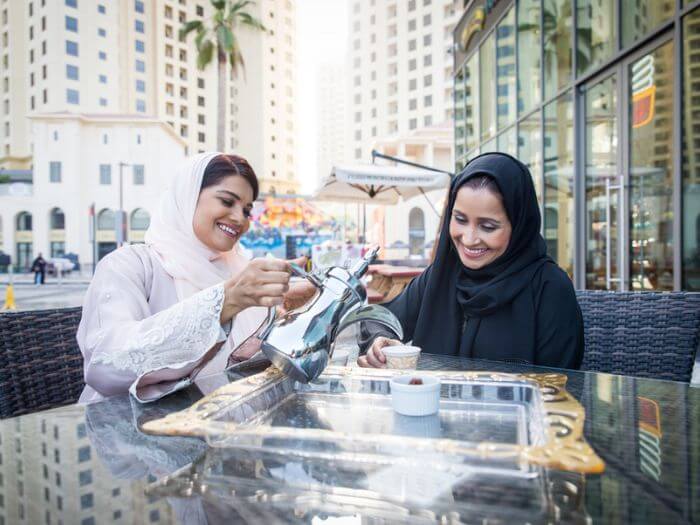
Now that we’ve gone through a lot of the different Arabic dialects, you might be wondering what the best approach would be to learning Arabic.
Seeing as a lot of the Arabic dialects are pretty different from each other, you might be thinking that it would be better to first get a handle on MSA before turning to learning any one of the Arabic dialects.
And sure, there are a lot of Arabic linguists who make this argument as well so that you don’t confuse any one of the dialects with MSA.
But personally, I disagree. And here’s why.
Learn Them Together
First, there’s a strong case for learning MSA and one of the dialects at the same time. It’s the same way that children who grow up speaking Arabic master learning how to speak, listen, read, and write, all at the same time.
At the end of the day, it’s really just a matter of learning how to compartmentalize clearly between MSA and the dialects so that you know which grammar rule or vocabulary word to refer to for either situation.
Second, and most importantly, learning any language requires a lot of time practicing speaking, and learning the dialects is the best way to do that.
By delaying learning a dialect so that you can master MSA first, you’ll just be delaying learning how to speak fluently.
Learn Both With Arabic Uncovered

So what should you do in this situation? Well, my new course has come up with a solution to this dilemma.
Recognizing that learning MSA is important for understanding Arabic texts, while also recognizing that learning a dialect is critical for learning how to speak, I’ve developed a new course called Arabic Uncovered.
In the course, you’ll learn MSA through a captivating story you read using the StoryLearning® method. But at the same time, you’ll also learn how to speak in one of four dialects: Egyptian, Levantine, Gulf (Saudi), or Maghrebi (Moroccan) Arabic.
Here’s how it works. First, you get to learn the story using MSA. But afterwards, you get the option to listen to the same story in the Arabic dialect of your choice.
That way, you get to master reading and writing, while also learning how to speak and listen in your chosen dialect.
If this sounds interesting to you, then sign up for the course at this link!
Which Arabic Should I Learn? Arabic Dialects
I wish the answer to this was simple! Of course, there are advantages to learning any one of the Arabic dialects. And there might be some features to specific dialects that make learning one more appealing than the other.
But at the end of the day, only you can answer this for yourself, as the answer really depends on you, your goals, and your interests.
Here are some other factors that you might take into account when deciding which Arabic dialect you want to learn:
Travel Plans
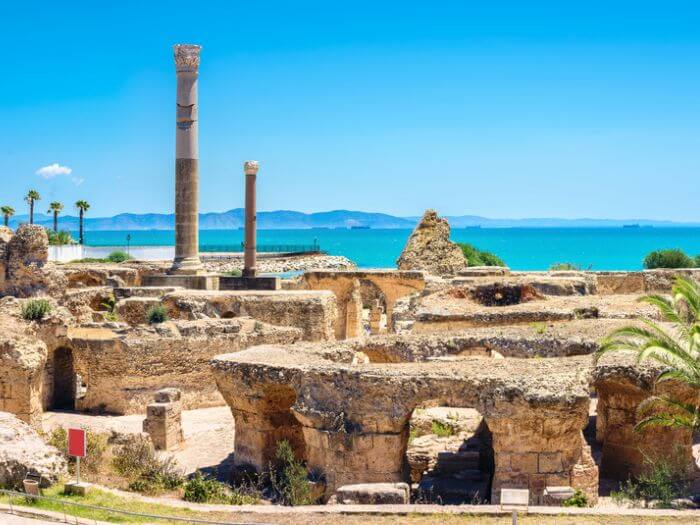
Are you an avid traveler and planning on traveling to an Arabic-speaking country?
You might be thinking about traveling to important historical sites like the pyramids and Luxor in Egypt, the city of Carthage in Tunisia, the Nabatean kingdom of Petra in Jordan, or Tripoli in Lebanon.
Or perhaps you’re interested in exposing yourself to the unique Arabic culture in Morocco, or exploring skyscrapers in Dubai.
If any of these travel interests or plans apply to you, then you might pick an Arabic dialect to learn based on your next travel destination.
And if you’re an avid traveler, then you might even think about learning the basics in a number of different Arabic dialects.
Personal Motivations And Goals

You might not necessarily be planning your next trip abroad to the Middle East, but there can still be reasons that are important for you to think about when deciding on which type of Arabic you should learn.
If you’re learning Arabic for religious purposes, then it’s definitely worth investing in learning MSA and in due course, Classical Arabic.
Or if you’re learning Arabic so that you can attend school in the Middle East, then learning MSA is definitely the way to go.
But if your goal is to be able to speak with locals, then it’s definitely worth thinking about learning one of the dialects.
Perhaps you’re thinking about finding a job in the Middle East. You might then think about learning one of the Gulf dialects, seeing as the Gulf includes major economic hubs like Dubai.
It really comes down to what your personal goals and needs are for learning Arabic!
Level Of Challenge And Available Resources

Another way you can decide on which Arabic you should learn is to think about the level of challenge you’re ready to take on.
What do I mean by this? Well, some of the dialects have a lot more available Arabic resources for learning, like Egyptian or Levantine, which might mean that you can more easily start learning one of these dialects compared to others.
On the other hand, if you’re a French or Spanish speaker, you might think about learning one of the Maghrebi dialects because of the number of loan words that you’ll already know from French or Spanish.
Or you might think about learning Gulf Arabic before any of the other dialects simply because it’s more similar to MSA than the others.
Perhaps you have a close friend that speaks Iraqi Arabic, which means that you’ll have a speaking partner close at hand for practicing.
Some of these factors are circumstances that might apply specifically to you, which is why it’s not easy for me to say off the bat which type of Arabic you should learn.
But with all of the information I’ve shared here, I’m confident that you’ll be able to make the right decision for you.
Which Arabic Should I Learn?
So, what’s the verdict? What's your answer to – which Arabic should I learn?
Whatever your decision, I’m sure that you’ll make lots of progress and that with a bit of hard work and determination, you’ll start speaking fluently in no time.
Remember, just because you decide to learn one dialect for now, it doesn’t mean that you can’t go back later to learn another.
In any situation though, I definitely recommend trying to learn how to read, write, speak, and listen at the same time by learning both MSA and a dialect of your choice.
And to do this, there’s no better option than my course, Arabic Uncovered!
This unique course teaches you Arabic through StoryLearning®, and helps you learn both how to read and write in MSA, while also teaching you how to speak in one of four Arabic dialects: Egyptian, Levantine, Gulf, or Maghrebi!
I guarantee you that it’s fun, easy, and effective! Sign up for a free 7-day trial.

Olly Richards
Creator of the StoryLearning® Method
Olly Richards is a renowned polyglot and language learning expert with over 15 years of experience teaching millions through his innovative StoryLearning® method. He is the creator of StoryLearning, one of the world's largest language learning blogs with 500,000+ monthly readers.
Olly has authored 30+ language learning books and courses, including the bestselling "Short Stories" series published by Teach Yourself.
When not developing new teaching methods, Richards practices what he preaches—he speaks 8 languages fluently and continues learning new ones through his own methodology.
